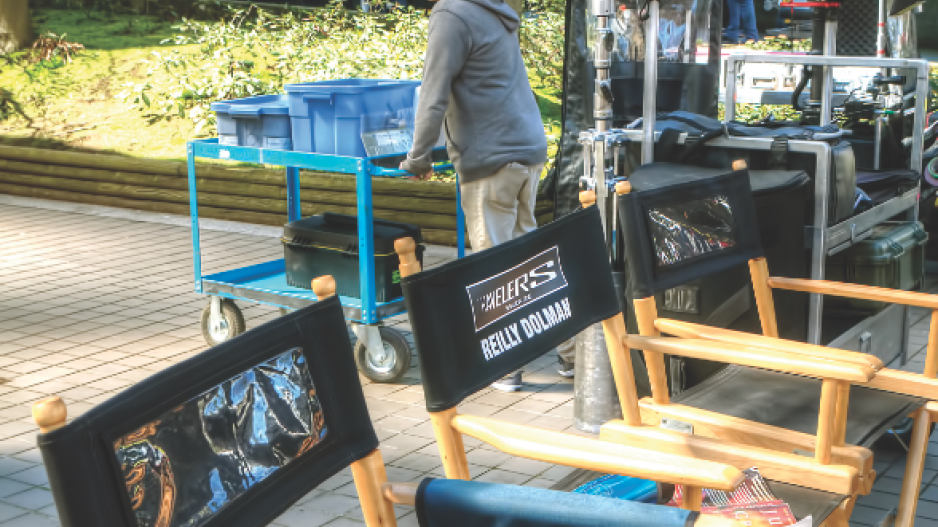Just as Netflix (Nasdaq:NFLX) has pervaded the homes of Canadian film and TV viewers, new federal policy has the streaming service poised to pervade the country’s film and TV industry.
But considering Netflix’s already notable production presence in Vancouver, it’s unclear whether a commitment made late last month to spend $500 million on productions in Canada means an expanded footprint in B.C.
Federal Heritage Minister Mélanie Joly announced September 28 that Ottawa’s new Creative Canada framework requires Netflix to create a new production company to invest “in original production in Canada” over five years.
Liz Shorten, vice-president of the B.C. chapter of the Canadian Media Producers Association, said her organization is “cautiously optimistic” this investment isn’t meant solely for the service industry.
“They’re already contributing in terms of doing lots of [American] productions, as you know, here in Vancouver and across the country,” she said.
“Our hope would be that [the $500 million is] to incent Canadian content, not content that’s produced in Canada, which is a different nuance.”
Joly’s announcement does not explicitly state how much of the $500 million over five years will go towards Canadian content, which has strict requirements to be classified as such.
However, it’s likely Netflix already spends more than $100 million annually in Canada.
“In 2016 alone, we’ve commissioned hundreds of millions of dollars of original programming produced in Canada,” the company wrote in a letter to Joly last year.
“And Netflix has made dozens of commitments in 2016 for Netflix original movies and television series that will be produced in Canada.”
Beyond its own claim that it spent “hundreds of millions of dollars” in one year in Canada, it’s unclear how much of that was spent in B.C.
Netflix does not break down its budgets for original movies and TV shows in its financial documents.
But two 2016 MNP reports commissioned by the Motion Picture Association – Canada offer clues to how much certain productions add to the B.C. economy.
Based on those numbers, Netflix may have contributed anywhere from $75.6 million to $90 million to the B.C. film industry last year.
MNP examined the financial impacts of 22 episodes of the TV series Once Upon a Time shot in 2013-14 and 23 episodes of Supernatural shot in 2014-15.
The former amounted to a $55 million contribution, or $2.5 million an episode.
The latter amounted to $49.6 million, or $2.1 million an episode.
Two Netflix original TV series (Haters Back Off and A Series of Unfortunate Events) and two Netflix co-productions (Dirk Gently’s Holistic Detective Agency and Travelers) were filmed in Vancouver in 2016.
The original series produced 16 episodes, while the co-productions produced 20 episodes, for a total of 36.
Netflix does not invest as much of its own money in the co-productions as it does in its original programming.
And a comedy series such as Haters Back Off has a shorter running time and fewer visual effects than A Series of Unfortunate Events.
But if Netflix invested the same amount of money in its four Vancouver-shot series as did the producers of the TV shows examined by MNP, the streaming service may have invested $75.6 million to $90 million in shows produced in B.C.
This estimate does not include Netflix original movies, other Netflix TV series that may have used B.C. Visual effects houses or animated series that may have used local studios.
The estimate also does not take into account that Netflix invested less of its own money in co-productions.
“People in the industry were waiting to see if the federal government was going to bring Netflix in line and make it operate like any other broadcasting business in Canada. Or for that matter, any business,” Rudy Buttignol, president and CEO of Burnaby-based the Knowledge Network, told Business in Vancouver after Joly revealed the Creative Canada framework would allow Netflix to avoid charging customers a consumption tax on subscriptions.
“Instead we got this flashy headline of half a billion dollars, which sounds great except that Netflix is notoriously opaque.”
Buttignol said he’s unhappy that traditional broadcasters are required to contribute revenue to funding that goes towards Canadian productions, while Netflix was able to negotiate directly with the government.
“It feels that here we have federal cultural policy being dictated from southern California,” he said.
Katy Anderson, a digital rights specialist at Vancouver-based digital advocacy group OpenMedia, said Netflix “dodged a bullet big time” by negotiating with the government.
“Instead of being mandated to produce Canadian content and to have a tax, they got ahead of it and now it’s this $500 million gift from Netflix,” she said.
“They’ve already said they were going to make billions and billions of dollars in more shows, so what’s $500 million?”




